Men's pleasures, a night spent in the arms of a Turkish boy, and even a constant relationship with an older man. Homosexuals visit the tomb of the young king, considering him almost their patron. The orientation of this son of Jagiełło is still controversial. How was it really?
For many years, there has been a fierce discussion about Władysław Warneńczyk's sexuality. In 2008, for the King's birthday, LGBT organizations planned to put on an open-air performance on the market square in Krakow, entitled "The King's Gay Lovers". A year later, the March of Rainbow Tradition and Culture chose the symbolic grave of a Varna in the Wawel Cathedral as its destination. The list of arguments that this ruler of Poland and Hungary was a homosexual is long. It is time, however, to see if these arguments withstand the collision with genuine historical criticism.
Władysław never married
Doubts as to the Varna's orientation are raised by the very fact that, despite four attempts, he never got married. It is, however, a stretched line of command.
In 1434, shortly after his accession to the throne, an envoy was sent from Krakow, asking for the hand of the granddaughter of the King of Bohemia and Hungary, Sigismund of Luxemburg, Anna Habsburżanka. The Jagiellonian was 10 years old then. Anna only two, but what if she was to inherit her grandfather's land one day. Zygmunt, however, did not agree to the wedding.
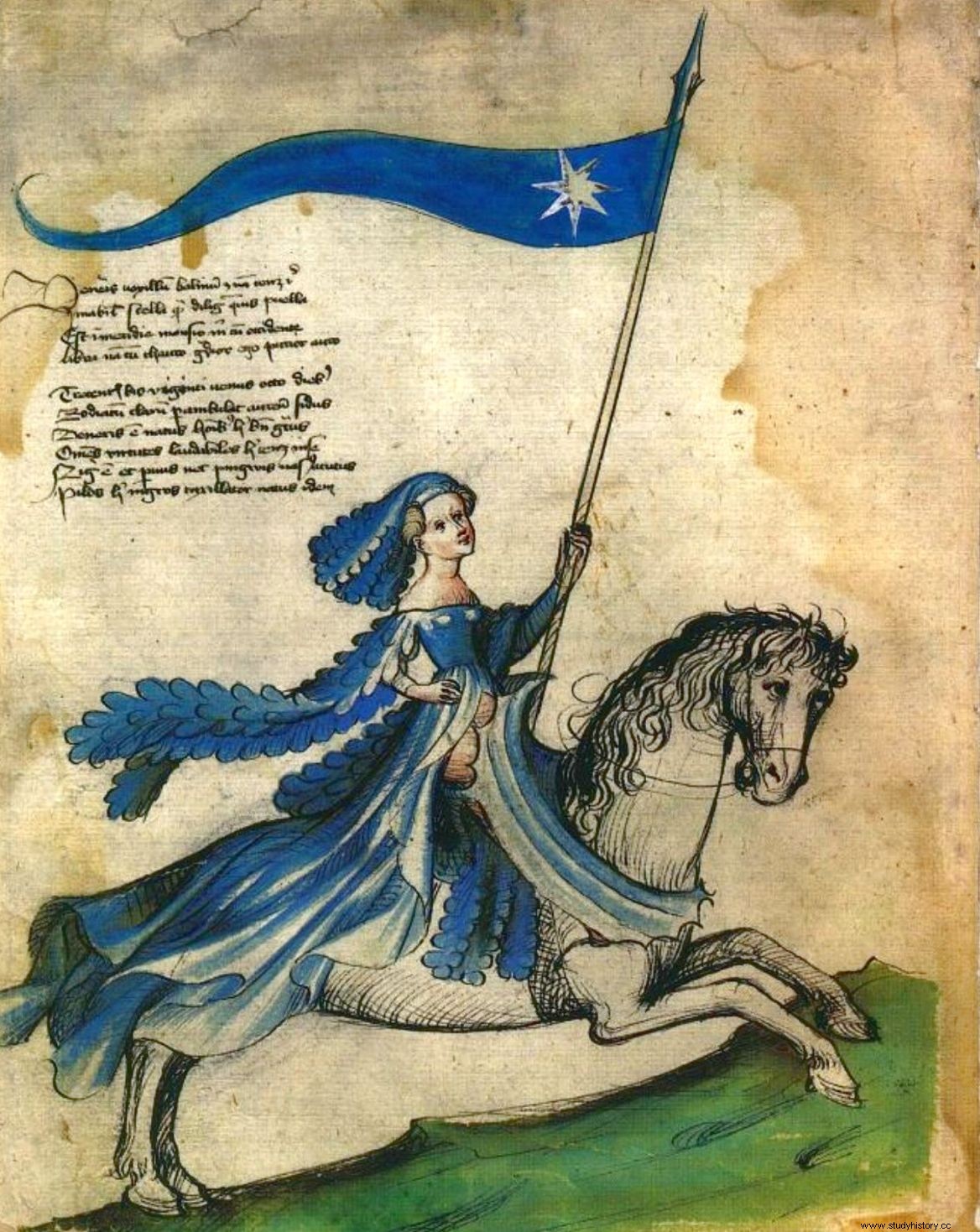
Barbara Cylejska, the widow of Zygmunt Luxemburg, wanted to be wife of Władysław III.
After the death of the Luxemburger in 1437, Władysław was courted by ... his widow, Barbara Cylejska, "only" 30 years older than the king of Poland. The woman hoped that her relationship with the 13-year-old Władysław would allow her to maintain power in Hungary. When her son-in-law, Albrecht Habsburg took the throne, this bizarre marriage ceased to pay off.
Two years later, Albrecht Habsburg died, so the Jagiellonian was treated to a pregnant and twice his older widow, the daughter of Barbara (and Anna's mother), Elizabeth of Luxembourg. The woman hoped that in this way she would remain on the throne if she gave birth to another daughter. But when she gave birth to her son, the true heir to the throne, she ceased to care about marrying the young man.
In the meantime, there were attempts to match Władysław with Katarzyna, a Saxon elector, 3 years older than him, but this relationship did not present such benefits as the above.
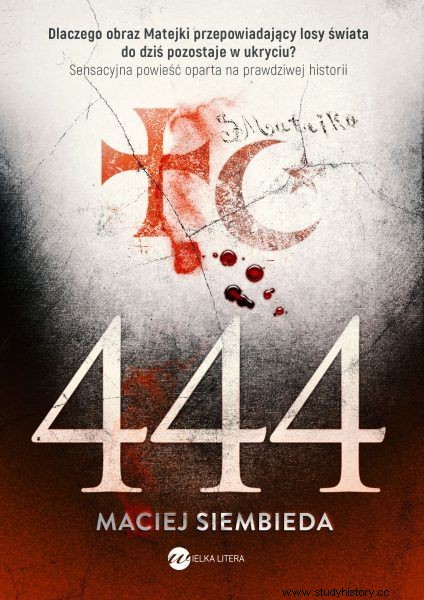
The article was inspired by the new book by Maciej Siembieda "444" (Wielka Litera Publishing House 2017).
There is no indication that any of these marriages did not take place for reasons other than political reasons. Anyway, if we considered gay every Polish ruler who did not get married before his twenties (because that was the age of Warneńczyk at the time of his death), there would be few heterosexuals on the throne ...
He had a permanent partner
Such a revelation can be read in Polish books on homosexuals in history. It originated from a short mention in the 12th book of the Annals of Długosz. When in May 1440 the nearly 16-year-old king was traveling through Hungary to take the throne there, a sad accident happened:
While there His Serene Majesty indulged in hunting wild duck with falcons in the evening, his very expensive secretary Jan, son of Seńek from Senniów, nee Korczak accidentally drowned in the Arnath River. This incident disturbed the hearts of many who said that such a death of the secretary foretells evil and adversity for King Ladislaus in Hungary.
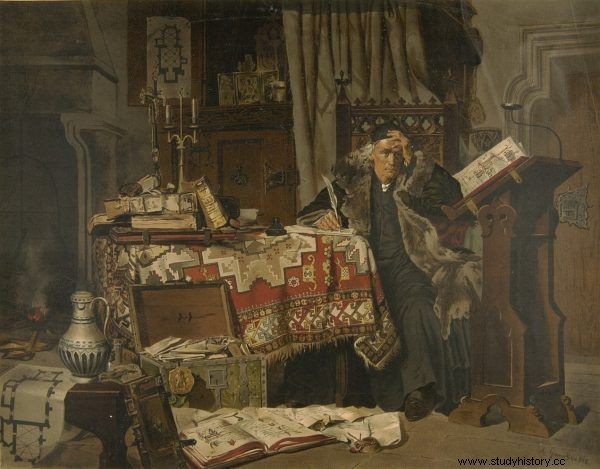
For many, the words of Jan Długosz clearly prove the homosexuality of the Warnański. But is it really so? The illustration shows the portrait of the chronicler by Antoni Gramatyka.
On this single term that Władysław had a special affection for Jan, the thesis was built that they were lovers. Moreover, Paweł Fijałkowski in his book "Homosekstiści" considers the death of the secretary to be a key moment in the life of the young king:
This event could have had a negative impact on the psyche of the young king and pushed him to express homoeroticism too freely. He entered the path of sexual transgression, which was dangerous in his time, so even if he had not died at Varna , his life must have ended in a disaster.
Elwira Watała developed this vision in her book "Sodomites". In her opinion, after Jan's death, the young pages went in motion. To stimulate the imagination, the author crowns her thesis with a long quote from Włodimir Sorokin's "Oppycznik's Day", depicting a "male anal caterpillar".
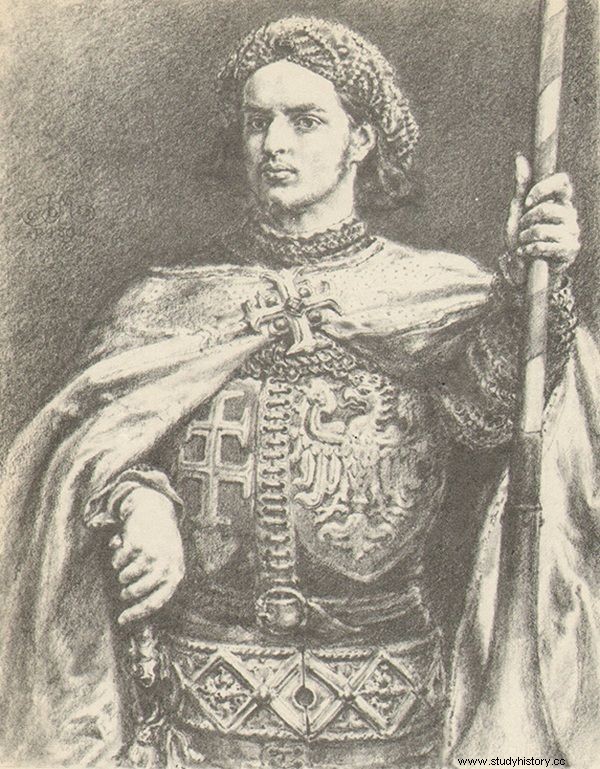
Does the interpretation of Długosz's words result from a misunderstanding of the relations prevailing at the top of the government? The illustration shows a young ruler according to Jan Matejko.
I must admit that these are really bold theses for one short, devoid of details. Searching for erotic intimacy in this fragment may indicate a lack of faith in male friendship ... But first of all, it should be interpreted as an example of misunderstanding the relations prevailing at the time at the top of the government.
In an era devoid of intimacy, in which kings almost 24 hours a day, in all official and private activities, were accompanied by members of their courts, intimacy with selected advisers or even servants was a completely ordinary thing. Mentions of "dear" collaborators can be found in the same way in relation to Zygmunt August, Zygmunt Stary or Kazimierz Jagiellończyk. However, no one translates this source information into matters of a sexual nature.
He spent the last night before he died with a Turkish boy
Such sensational news was reportedly in the letter of the papal legate Julian Cesarini, present on the battlefield with the Turks. According to the aforementioned epistle, the defeat of the Polish king was a punishment for sodomy. There is only one little problem. None, but none of the many historians describing the Battle of Varna does not know this letter!
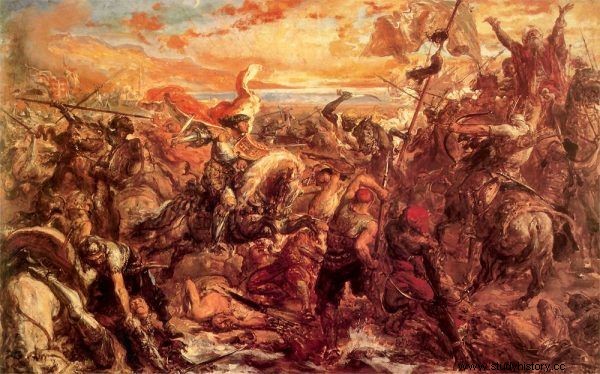
The defeat at Varna punished for the king's homosexuality? This was allegedly stated by the papal legate in his letter. The problem is that no one has ever seen such a letter. The illustration shows a painting by Jan Matejko showing the said battle.
Moreover, one should have considerable doubts as to whether the indicated message could have been created at all. Cesarini died near Varna while escaping from the battlefield. So when would he write such a letter - in preparation for battle? During the clash? Or when he galloped blindly trying to save his skin?
Even Długosz wrote about his "contrary to nature" inclinations
The issue of defeat as a punishment for sins was successfully developed by Jan Długosz at the end of his description of the Battle of Varna:
[King Władysław], prone to male delights , neither during the first expedition against the Turks, nor during the latter, [...] completely ignoring his own danger and the threat of the entire army, did not abandon his opposing chastity, loathsome pleasures .
[...] on a previous expedition [...] the knights advised [...] the king that he would easily win a glorious and glorious victory [...] if only [...] he would marry Heavenly God that he will abandon these foul-smelling impurities . King Władysław voluntarily accepted this condition [...] that would cast away his shameful passions and throw away all their odors . […]

The article was inspired by the new book by Maciej Siembieda "444" (Wielka Litera Publishing House 2017).
God's grace was so forgiven [..] that he also smashed many enemies [...]. But this success was short-lived. [...] No wonder, because King Władysław himself, not remembering God's blessing and his oath, committed a wicked crime still on the return from this trip. He began to disgracefully insult most gracious God, [...] and in accordance with the most just law of God [...], he had to fail [...].
Did Jan Długosz refer to homosexual relations when he wrote about "male delights"? According to Paweł Fijałkowski, definitely yes. The author went even further. According to him, Władysław from 1443:"he felt the master of his life and stopped hiding his homosexual nature" . Fijałkowski also believes that Długosz, writing a whole chapter on the misdeeds of the young ruler:
Perhaps he wanted to convince his contemporaries and posterity that they should not pity the brave king, and that his death was the best solution for everyone […].
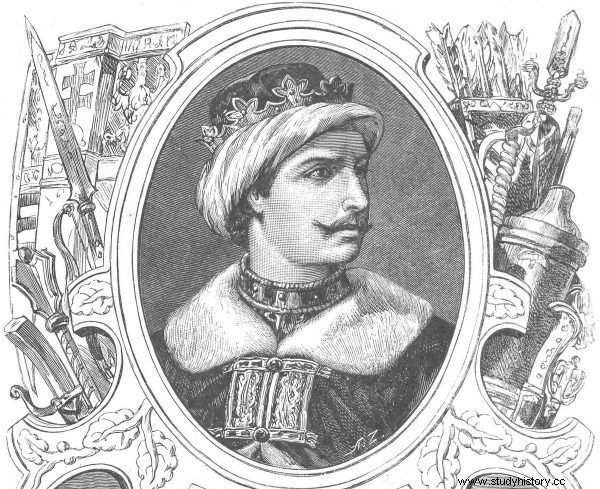
According to Paweł Fijałkowski, from 1443 Władysław III did not hide his homosexuality at all. The illustration shows the portrait of the ruler by Ksawery Pilati.
Varna's homosexuality was supposed to explain the defeat not only as its direct cause. The remorse caused by living in sin was also meant to make the king easily persuaded to break the treaty with the Turks. The promise of forgiveness was enough. And that would mean that he only marched to the field outside Varna because he was gay.
"... based on probable assumptions"
The supporters of the above thesis do not mention that the chapter of the Chronicle of Długosz devoted to the vices of the Warnański begins with the assurances:
Much could have been hidden from mortals and known only to God for such an unfortunate defeat […]. Some, however, on the basis of probable assumptions, argue that the aforementioned king of Hungary and Poland, Władysław, was the main perpetrator of the defeat […].
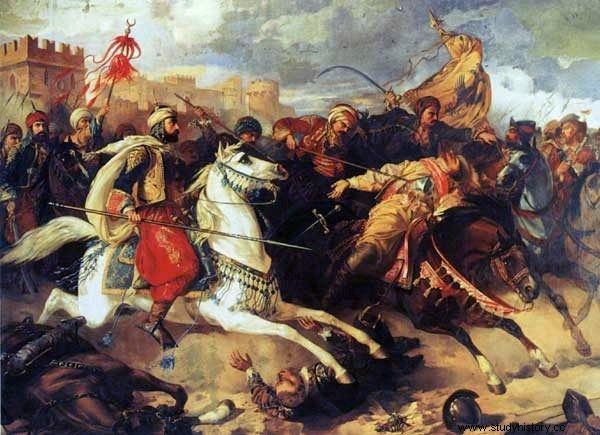
Writing about the battle with the Turks, Długosz emphasized the bravery of the young monarch. The illustration shows the Battle of Varna by Stanisław Chlebowski.
Such an introduction clearly shows that the author is publishing a rumor that he is unable to verify. In fact, Długosz, writing about Varna, does not blame the young king, but emphasizes his heroism. Just a few sentences after the fragment devoted to the sins of Władysław, he draws a real card of a short reign:
No age has ever seen and will never see a more Catholic and holy ruler who, according to his utmost goodness, has never harmed any Christian. [...] Finally, like the holy king and second angel on earth, he lived unmarried and virginal life at home and during war.
Researchers are confused by such a huge contrast. In the general, luminous picture of the reign of Jagiełło's eldest son, in one place there was a considerable tear which - as it seems - did not affect the positive assessment of the ruler by the chronicler. Długosz described his piety and other virtues in a dozen or so other places.
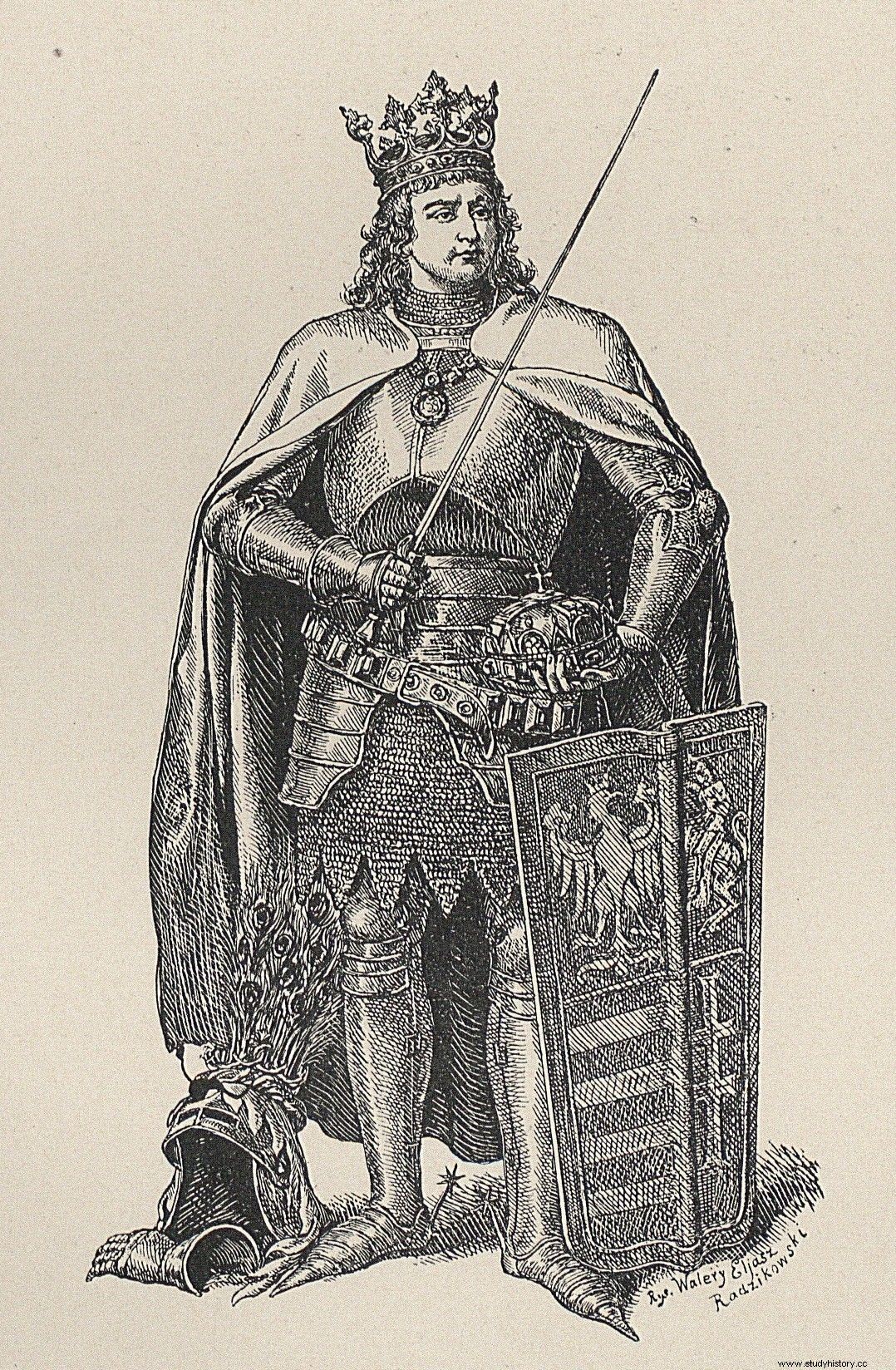
Describing Warneńczyk, Długosz shows the ruler in the best light with one exception. The illustration shows the portrait of the monarch by Walery Eljasz-Radzikowski.
The analysis of the manuscripts of the Annals does not make it any easier. In some of them, considered very close to the lost original, there is no section at all about the ruler's "shameful passions". Was this fragment added later and copied in subsequent manuscripts, and Długosz had nothing to do with it? Or maybe the copyists omitted the inconvenient and incompatible description? Researchers tend to favor the latter, but doubts remain.
The flood of theories related to Varna's orientation was, it seems, related to the publication of a new translation of Długosz's work in 2004. The previously used version from 1869 presents the ambiguous words of the Krakow chronicler as:"he was too subject to fleshly lusts", "he did not give up his filthy and disgusting addictions", a vile misdemeanor. ”
The new translation suggests homosexuality more than the previous one. However, most historians using the Latin manuscripts of the Annals of Długosz are convinced that… this is not what the chronicler had in mind. Medievalist and expert on Hungarian history, Dr. Stanisław A. Sroka strongly denies that "male delights" have anything to do with "men's delights."
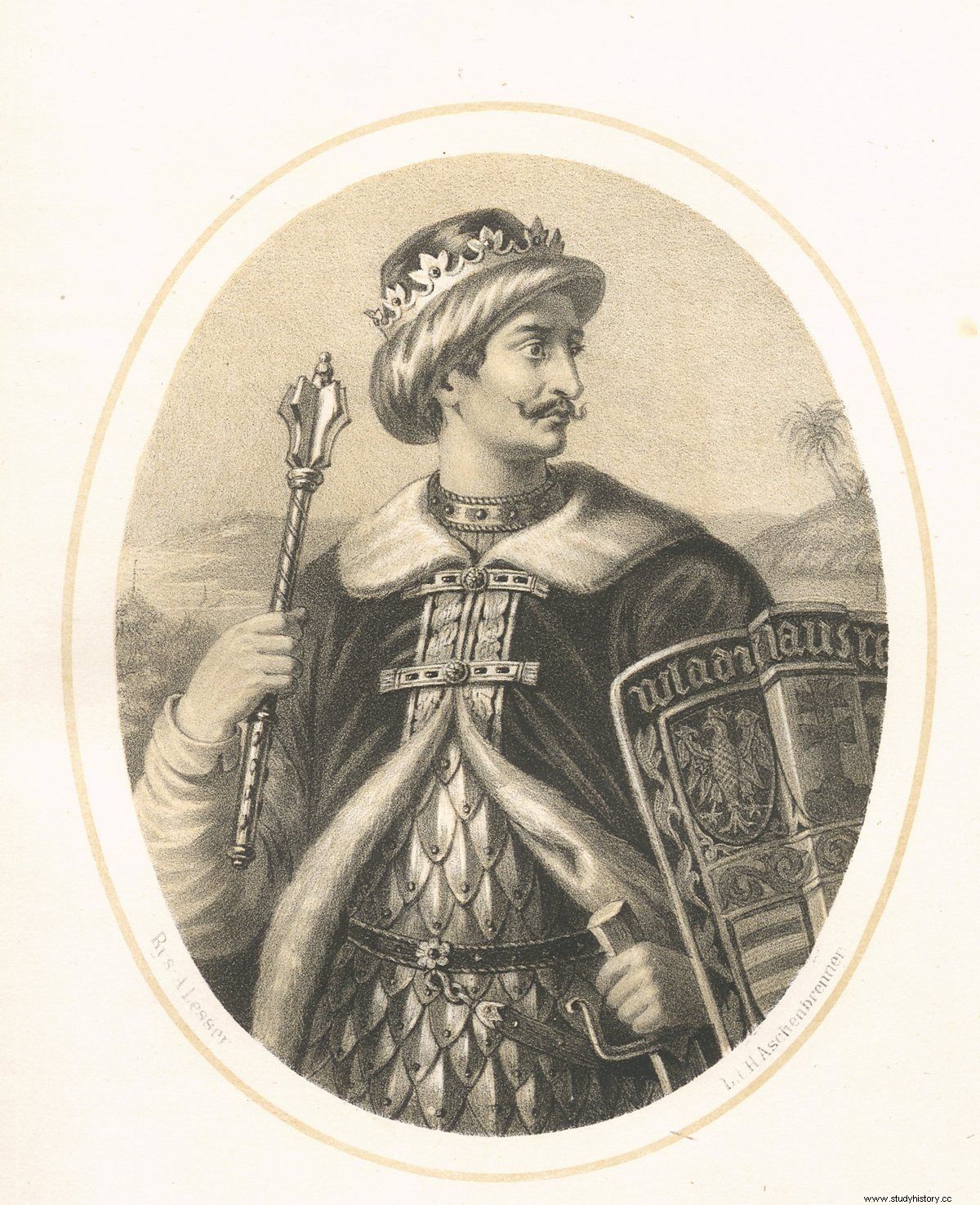
Most historians who use the Latin originals of Długosz's Annals believe that the chronicler did not suggest the homosexuality of the Warnański. The illustration shows the image of the ruler by A. Lesser.
Dr. Jacek Krochmal from the Central Archives of Historical Records writes that Długosz presents us with a picture of an incorrect sinner, although he does not mention what the king was offended by the divine majesty. In doing so, he draws attention to the usually overlooked reference to incest that the king allegedly committed.
What's in it?
Today it is difficult to say with certainty what sexual orientation was presented by Władysław Warneńczyk. None of the evidence offered by his homosexuality advocates is conclusive, and most of it appears to be an over-interpretation of the preconceived thesis.
On the other hand, it cannot be denied that after the king's death, there were some rumors about his private life. Hence the alleged letter from Cezarini, as well as the controversial chapter in Długosz. Was it just an attempt to explain the causes of the defeat at Varna, or was there a grain of truth in them? And if the Varnah was really considered a "sinner", does this mean that he was suspected of being homoerotic while he was still alive?
Based on the sources, these questions cannot be answered unequivocally. Certainly, however, there are not enough grounds to declare this ruler a gay, let alone a patron of Polish gays.
Buy the book at empik.com

